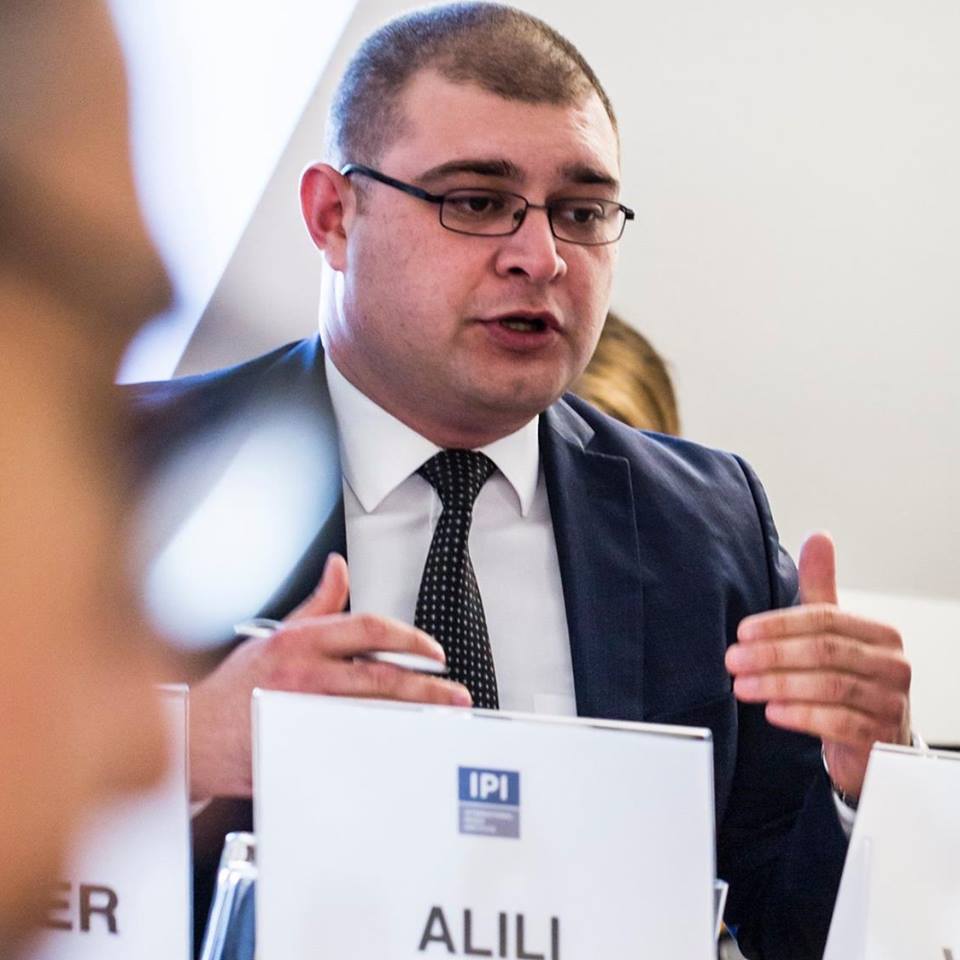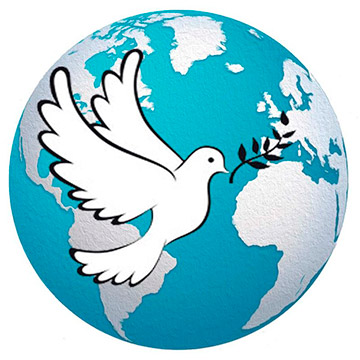Publications
After the De-occupation of Kherson: Winter Break or Attack on Crimea?  By Nika CHITADZE, PhD, Director of the Center for International Studies, Tbilisi By Nika CHITADZE, PhD, Director of the Center for International Studies, Tbilisi
As it is known, the liberation of Kherson has already been assessed as a great military and an important political and psychological victory for Ukraine. Now it is possible to analyze what new opportunities this gives to the Ukrainian army and how things will develop. At the same time, the Russian forces launched a massive offensive in the Donetsk region, and are carrying out more intensive missile attacks against the critical infrastructure of Ukraine, as a result of which, first of all, the civilian population of the country is harmed and the victims are increasing more and more. With all of the above, the Russians want to somehow cover up the Kherson disaster. At the same time, it is worth noting the fact that the Russian army is insufficiently equipped and not ready for the winter war. This is the main reason why the Russians are asking for negotiations. According to them, depending on the situation on the front, the events may develop in two scenarios - the parties take the so-called winter break, or the armed forces of Ukraine develop an offensive to the south - first in the direction of Melitopol and Mariupol, and then in the direction of Crimea.
READ MORE
Publications
Can Armenians Agree on a Unified Strategy?  By Yeghia TASHJIAN, Beirut-based regional analyst and researcher, columnist, "The Armenian Weekly” By Yeghia TASHJIAN, Beirut-based regional analyst and researcher, columnist, "The Armenian Weekly”
Over the past few weeks, I participated in multiple international and regional workshops and conferences in Europe and Russia and met with many European, Azerbaijani, Turkish, Iranian and Russian experts and politicians. These opportunities and encounters made me realize that we as Armenians must adapt to a new reality, revise our strategy (if we have one) and try to confront the dangers with the resources that we have. The possibility of a new war with Azerbaijan is very high, but proactive diplomacy and deterrence can postpone a major military clash.
I also realized a change in attitude in many Azerbaijani experts. Of course, we cannot generalize, but from their perspective, Azerbaijanis still firmly believe that the Nagorno-Karabakh crisis has been resolved, which the West and Russia do not agree on. They do not have enough leverage to force their will on Baku, as Azerbaijan is playing its energy card very well for now. Azerbaijanis have come to realize that if they enforce their will over Nagorno-Karabakh and engage in ethnic cleansing, there will be international backlash. READ MORE
Publications
Balancing the mediators - Armenia and Azerbaijan should avoid offending Russia  By Benyamin POGHOSYAN, PhD, Chairman, Center for Political and Economic Strategic Studies By Benyamin POGHOSYAN, PhD, Chairman, Center for Political and Economic Strategic Studies
The trilateral statement of November 10, 2020, which ended the 2020 Karabakh war seemed to sideline the US and France, who with Russia had for decades co-chaired the OSCE Minsk Group, from involvement in any post-war conflict settlement arrangements. It established instead a Russian monopoly in mediating future arrangements in the region. Neither Washington nor France was involved in preparing the November 10 statement, while the deployment of Russian peacekeepers in Nagorno Karabakh fomented the role of Russia as the only security provider for Nagorno Karabakh Armenians. Armenia, Azerbaijan, and Russia signed another trilateral statement on January 11, 2021, focused on restoring communications. The leaders' November 26, 2021, summit aimed to promote a border delimitation and demarcation process. In late 2021, the West started taking small steps to re-insert itself in the negotiation process, with the President of the European Council organizing the first Aliyev – Pashinyan summit in Brussels. READ MORE
Publications
New US National Security Strategy and Implications for Armenia  By Benyamin POGHOSYAN, PhD, Chairman, Center for Political and Economic Strategic Studies By Benyamin POGHOSYAN, PhD, Chairman, Center for Political and Economic Strategic Studies
On October 12, 2022, the White House published President Biden’s first national security strategy. The document outlines the US’ primary goals for domestic and foreign policy and its future vision for the world. US national security strategies have been published every four years since the early 2000s, laying out the incumbent administration’s policy goals and strategic priorities. The 2002 and 2006 national security strategies were focused on the war on terror and democracy promotion. The Obama administration, while emphasizing democracy promotion, started to refocus the US’ attention on the Asia-Pacific region. Meanwhile, due to the 2014 Ukraine crisis, the February 2015 national security strategy included harsh rhetoric toward Russia. In December 2017, President Donald Trump focused his national security strategy on great power competition and US rivalry with China READ MORE
Publications
Armenia and Azerbaijan Prepare to Make Peace
  By Ahmad ALILI, Director, Caucasus Policy Analysis Centre, Baku By Ahmad ALILI, Director, Caucasus Policy Analysis Centre, Baku
Benyamin POGHOSYAN, PhD, Chairman, Center for Political and Economic Strategic Studies, Yerevan
On 31 August 2022, the leaders of Armenia and Azerbaijan, meeting in Brussels under the auspices of European Council president Charles Michel, agreed to authorise their foreign ministers to start immediate negotiations on a peace treaty. Instead, in less than two weeks, the two sides found themselves negotiating yet another ceasefire.
Armenia and Azerbaijan are slowly emerging from a long period of conflict. Over three and a half decades, tens of thousands died in fighting; hundreds of thousands of people were displaced; tens of thousands of landmines and other unexploded ordnance contaminated huge tracts of territory, and war and enmity became the standard narrative with both Armenians and Azerbaijanis. The 1st Karabakh War in the early 1990s resulted in massive loss of territory by Azerbaijan; the 2nd Karabakh War in autumn 2020 changed the reality on the ground for the second time, nearly, but not completely, restoring the status quo ante.
READ MORE
Publications
The CSTO and Azerbaijan’s recent aggression against Armenia  By Benyamin POGHOSYAN, PhD, Chairman, Center for Political and Economic Strategic Studies By Benyamin POGHOSYAN, PhD, Chairman, Center for Political and Economic Strategic Studies
Azerbaijan launched a new, large-scale aggression against Armenia on September 13, and the absence of tangible actions by the CSTO to stop Azerbaijan’s attacks have reinvigorated discussions in Armenia about the country’s potential withdrawal from the CSTO. This recent wave of public discontent in Armenia about the CSTO coincided with a visit to Armenia by U.S. House Speaker Nancy Pelosi, which added a geopolitical component to the discussions, given the complete rupture of relations between the United States and Russia. On the very day of Azerbaijan’s aggression, Armenia officially appealed to the CSTO, based on article 4 of the treaty, asking for support, including by military means. READ MORE
Publications
The Geopolitical Background of Azerbaijan’s Aggression on Armenia  By Yeghia TASHJIAN, Beirut-based regional analyst and researcher, columnist, "The Armenian Weekly” By Yeghia TASHJIAN, Beirut-based regional analyst and researcher, columnist, "The Armenian Weekly”
Last week’s aggression by Azerbaijan on Armenia should be viewed from a regional lens, as the conflict imposes a new geopolitical reality not only on Armenia, but also Iran and the wider South Caucasus.
On September 10, 2022, the Defence Minister of Azerbaijan instructed his army to maintain combat readiness to “suppress any Armenian provocations.” Not surprisingly, three days later, Baku launched a full-scale aggression on Armenia’s eastern border, concentrating on Jermuk and using special forces, Israeli and Turkish-made drones and artillery strikes against military and civilian targets. Consequently, Azerbaijan occupied strategic positions near the border, exerting pressure on Armenia’s narrow southern region. The aim of this military operation was to enter Jermuk and force the authorities of Yerevan into another “capitulation.” READ MORE
Publications
Post-Soviet Peace: We Demand Peace  An open letter signed by people from Armenia, Azerbaijan, Russia, Turkey, and other countries An open letter signed by people from Armenia, Azerbaijan, Russia, Turkey, and other countries
We, a group of people who stand for peace, from the post-Soviet space and its neighbourhood exhausted by never-ending wars and growing imperialist rivalry on our territories, are full of rage as we have observed Azerbaijan’s recent large-scale attack on Armenia. This, coupled with Russian Federation’s attack on Ukraine and the renewed military clashes in border areas between Kyrgyzstan and Tajikistan, raises heavy concerns regarding possible future escalations not only in the Armenia-Azerbaijan conflict but all other conflicts in the post-Soviet space.
The recent attack on Armenia has costed hundreds of lives within two days from both sides of the conflict, caused serious destruction to civil infrastructure in Armenia, displaced thousands, and further widened the gap between the countries and their people. We raise our persistent voices against the continuing warfare. READ MORE
|
|